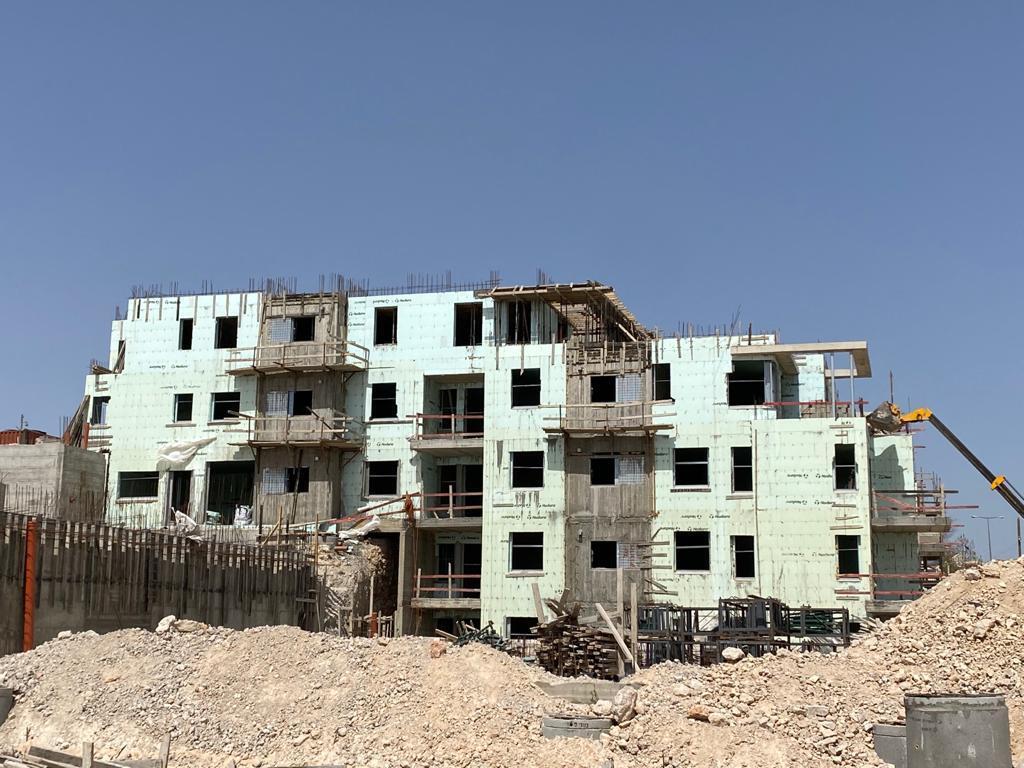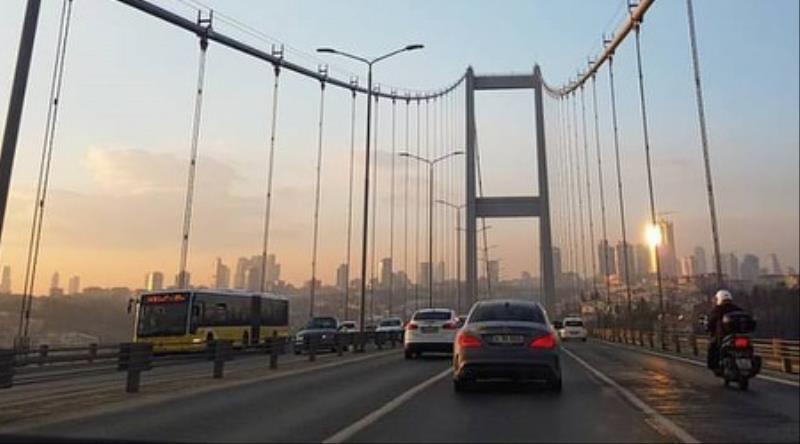Getting your Trinity Audio player ready...
Starting Tuesday, Turkey will enforce trade restrictions on Israel, encompassing various products such as cement, steel, and iron construction materials. The trade ministry announced this decision as a response to the continuing conflict in the Gaza Strip.
However, experts have told The Media Line they believe that a long-term and comprehensive ban on trade with Israel will negatively impact Ankara's economy, presenting popularity challenges to the government, and that, therefore, its implementation is doubtful.
3 View gallery


Turkish President Recep Tayyip Erdogan and Prime Minister Benjamin Netanyahu
(Photo: Ludovic MARIN / AFP, Marc Israel Sellem)
“This decision will remain in place until Israel declares a cease-fire immediately and allows adequate and uninterrupted flow of humanitarian aid into Gaza,” said the Turkish trade ministry.
Israel, in response, declared its intention to compile an "extensive" list of Turkish goods to ban for importation. Furthermore, Israel plans to advocate in Washington and globally for other nations to penalize Turkey for its actions. Turkey compiled a list of 54 products that will stop being exported to Israel.
Prof. Elise Brezis, head of the Azrieli Center for Economic Policy at Bar-Ilan University in Ramat Gan, near Tel Aviv, explained the extent of the importance of Turkish exports to Israel. She told The Media Line that Turkish exports to Israel were $4.6 Billion in 2023 and $6.8 billion in 2022, while total imports to Israel are $110 billion.
"So Turkish exports are 6%, and specializing in raw materials such as metals and iron (20%), construction materials (50%), and agriculture (9%) of low quality but very cheap," she added.
Dr. Lucrezia Leon Savasta, a Middle East and Eurasian expert, told The Media Line that she doubts a comprehensive ban will be implemented immediately. Instead, she sees Turkey's public announcement as a political move to pressure Israel and get more countries to join.
Savasta adds that, usually, in such cases of trade bans, it starts with a restricted percentage of the listed goods. "We have to remember that in those 54 goods listed by Turkey are iron and steel, and these are the major products bought by Israel," she said, adding that with the current economic situation in Turkey and the inflation of the Turkish lira. "I hardly believe that they will stop the complete export to Israel of these products," she continued.
Therefore, Savasta argues that if Israel or Turkey attempted to halt trade to punish the other completely, it could not be done without negatively impacting their economy.
"Let’s just focus on the fact that, very smartly, Turkey did not say that they would stop the import of goods from Israel," she said, noting that in 2022, Israel was among the top 5 countries from where Turkey was importing refined petroleum.
That is why she says a total ban is not sustainable for the Turkish government. "The country is facing a sort of internal fragmentation. See the last elections, and how Erdogan lost major cities, and when the economy comes to be touched negatively, general discontent grows. It can be dangerous for the central government," she asserted.
In addition, she notes that Turkey is very “money-oriented,” and its decision-making is usually very well economically calculated. "It is difficult to think that they will make a decision that might harm their economic status. The elites would not allow this to happen," she asserted.
Brezis says that if the proposed Turkish ban on 54 products occurs, the effects on Israel will be mainly on the construction sector. However, she notes that, since October, this sector has been working in slow motion due to the lack of workers. "Palestinians [from the West Bank] are not allowed to come and work in Israel, and migrant workers from India and Taiwan should arrive, but the permits are slow to arrive," she said.
"Cement is an interesting story," said Brezis, explaining that the Nesher industry had a monopoly on cement for decades until Israel opened the gates to import from Turkey. "So it will be interesting to see if Nesher can be competitive with imports from other countries," she continued.
Regarding other construction materials, such as ceramics, Brezis says that if the ban is enforced, the materials will arrive from China, meaning higher transportation costs and, therefore, an increase in prices.
However, she stresses that the worst effect is the announcement itself rather than an actual embargo since it can influence other countries to do the same. "If the embargo is enforced, this will have a strong effect on the [Israeli] importers from Turkey and, in the short run, on some prices, but it is not sure that the embargo will be enforced," she said.
"It could be that this is just a political announcement without really enforcing it. So we have to see what will happen in the next few weeks," Brezis continued.
Savasta explains that if the ban goes through, Israel can still import most of the products. "In these cases, other bordering countries will usually be the longer way to receive the same products," she said.
"We have to remember that when a country faces a ban, other countries are ready to profit from the situation," Savasta continued, citing the case of the bans on Russia, after which many goods stopped being exported directly to Russia but reached Russian soil passing through Kazakhstan.




